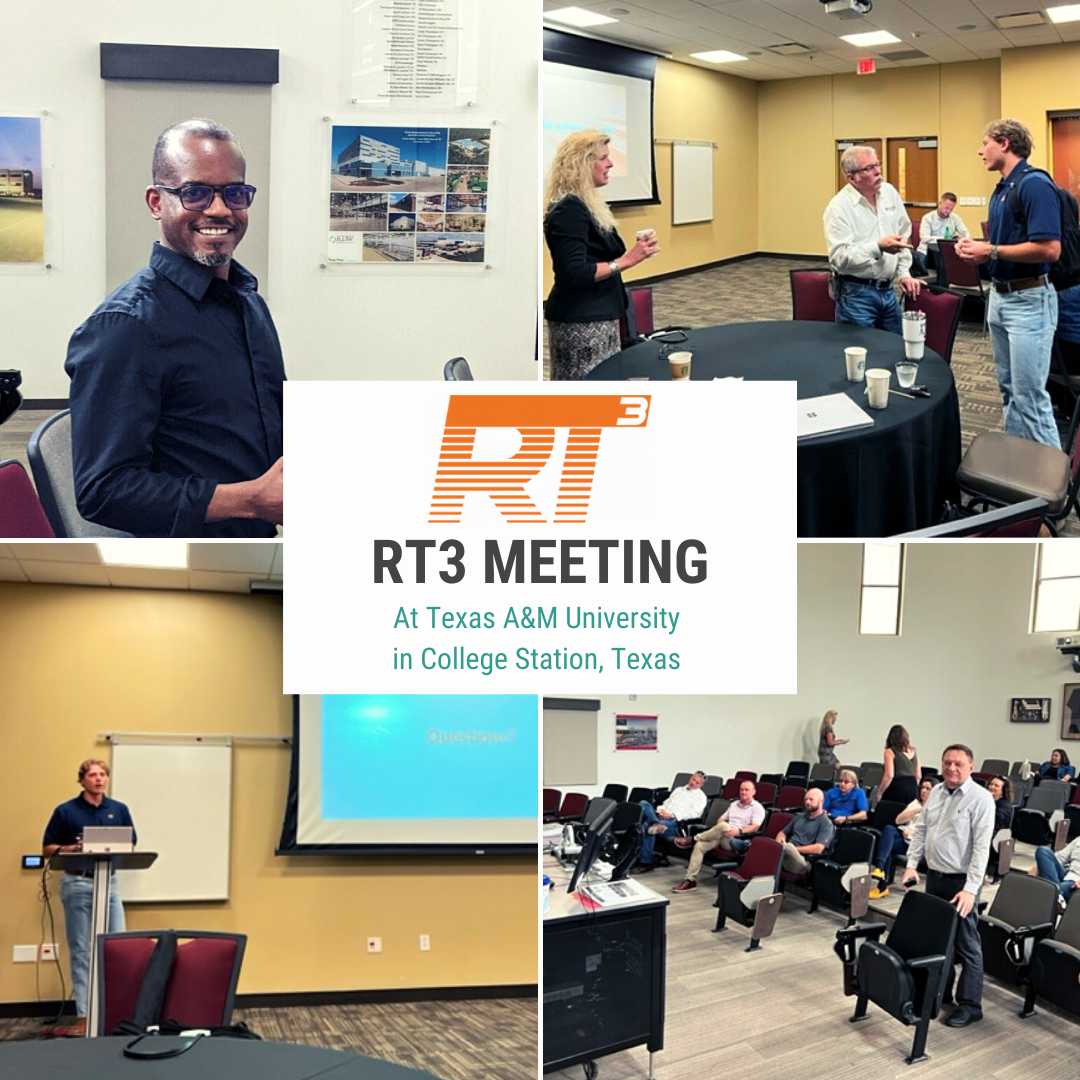In late May, Steven White, Jobba’s Chief Transformation Officer, and Dan Mihai, Jobba’s Chief Technology Officer, attended the Roofing Technology Think Tank (RT3) meeting held at Texas A&M University in College Station, Texas. RT3 is a group of thought leaders whose mission is to explore emerging technology solutions for the roofing industry, and then educate and inform roofing contractors on the best technology solutions to improve the professionalism of the entire roofing ecosystem. Jobba is a founding member of RT3 and has been active since its inception.
The meeting started by electing and announcing a new board of directors and assigning task team leaders. Jobba’s Steven White will be leading the new Innovation and Technology Task Team, and we’re all very excited to see what he’ll accomplish in his new role. Following the RT3 organizational business, DCKAP, a digital commerce specialist that builds, enhances, and manages enterprise eCommerce storefronts, presented how their solutions help solve software integration issues.
Following DCKAP’s presentation, the RT3 members started a brainstorming session focused on the topic Software Not Talking With Each Other. Steven made a presentation to help frame the problem, which also identified issues that go much deeper than just the software itself. Steven used an analogy based on the infamous Tower of Babel. Everybody could talk to each other but because they were speaking different languages (hello/hola/bonjour), they couldn’t understand one another. This draws a parallel that shows the same end result of the lack of a common language resulting in a lack of communication. This manifests into misinterpreted data and influences actionable insights resulting in halted progress for a company’s growth.
Steven suggested that as a prerequisite of the various software applications to effectively talk to each other, the industry, including contractors, needs standardization of roofing concepts, nomenclature, and terms – at the industry, regional, and even local levels. Only when this is institutionalized industry-wide, the various Application Programming Interfaces (APIs) can address the translation issue by standardizing datasets and file formats. When it comes to translating data between software applications, there are three dimensions; content, form, and meaning:
Content = the data
Form = structure of the data (ie. file format)
Meaning = context of the data (ie. converting information into action)
Google is a good example of how this works. It acts as a huge API that requires the user to follow a specified format in order to experience the benefits of Google Search. Google search does a great job at content and form but lacks meaning. Think about what happens when you do a google search. Thousands of results appear, and the user must interpret the results–the meaning is not automatic. APIs are great for communicating the content of data in standardized forms, but until and unless its meaning is also standardized, the transfer of these data will create more confusion and interpretation challenges rather than being effective.
There are a variety of ways roofing can adopt a standardized language. One example could be implementing it in education. Although the roofing industry does not have a formal education path, the NRCA offers a variety of education opportunities, and various universities are starting to incorporate it into their curriculum. Technology companies can also play an essential role in defining, distributing, and enforcing a standard language.
The brainstorming session unveiled different opportunities for RT3 and its partner organizations to help improve the effectiveness of the roofing ecosystem. Roofers Technology Think Tank has plans to work with other construction industries to create a standardization road map.
After discussing standardization plans, Texas A&M University Roofing Advisor Mark Standifer from King of Texas Roofing Company updated the members on the student roofing competition.
Following this, members were also given a tour of Francis Hall, which homes the College of Architecture at Texas A&M University. Francis Hall is unique because it features exposed mechanical, electrical, and structural systems making the building a learning laboratory.
After the tour, RT3 members listened to a presentation given by Hernan Guerra Santos, Industry Relations Coordinator and Senior Lecturer for the Department of Construction Science, which concluded the event.
Many thanks to Heidi Ellsworth and the Roofing Technology Think Tank for organizing this very effective and productive industry meeting. If you are interested in learning more about RT3, click here.
If you are interested in learning more about how Jobba can help your organization grow and prosper by leveraging the latest technology, fill out the quick form below and watch our 5-minute introductory video.


